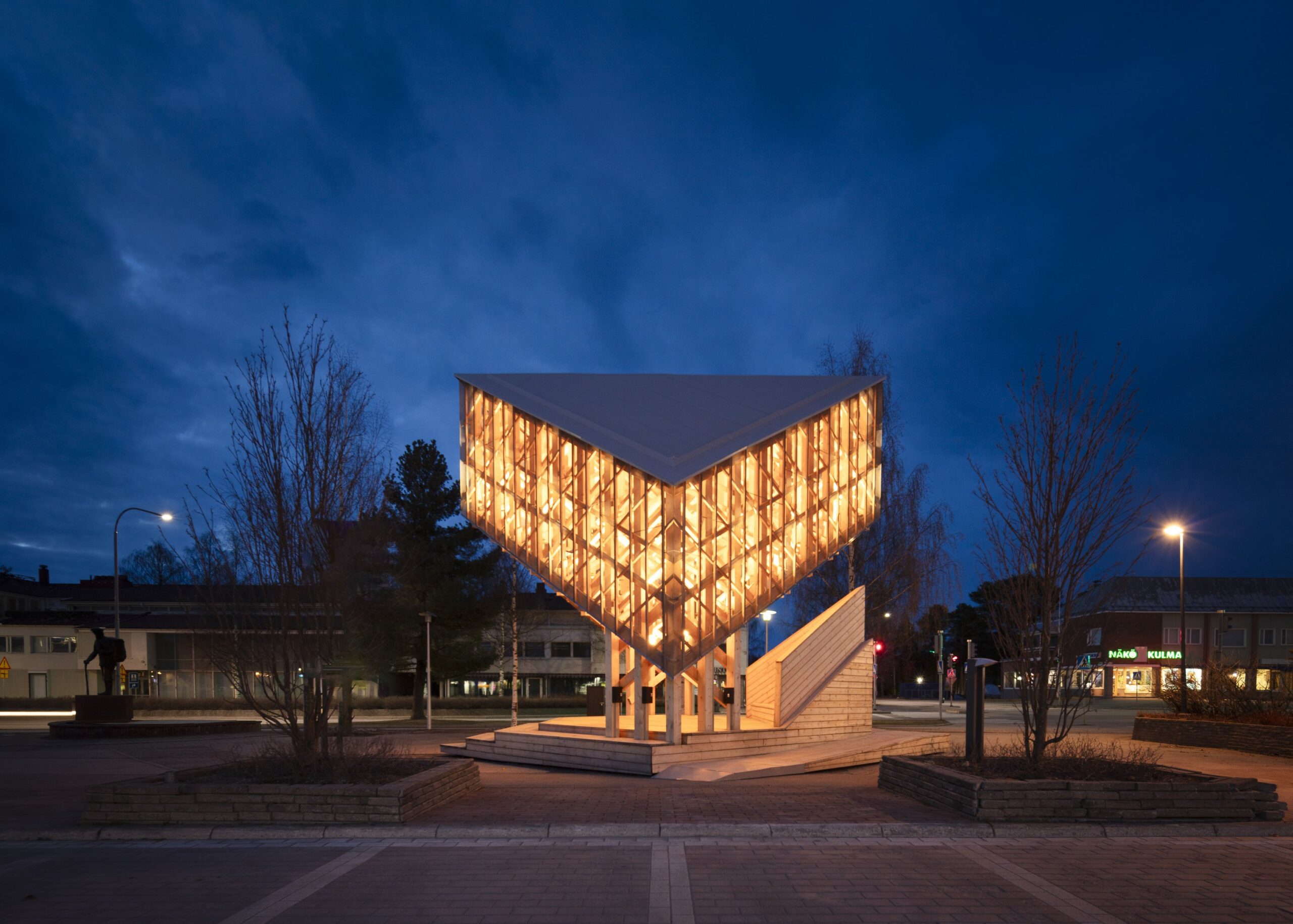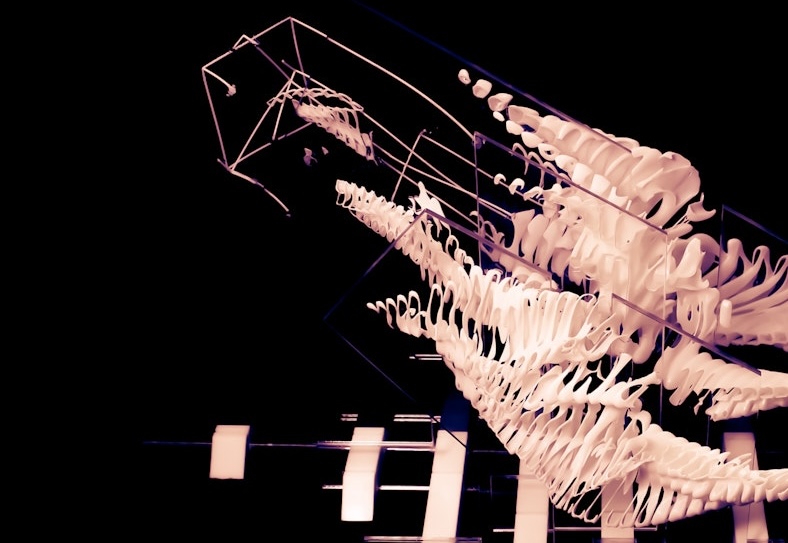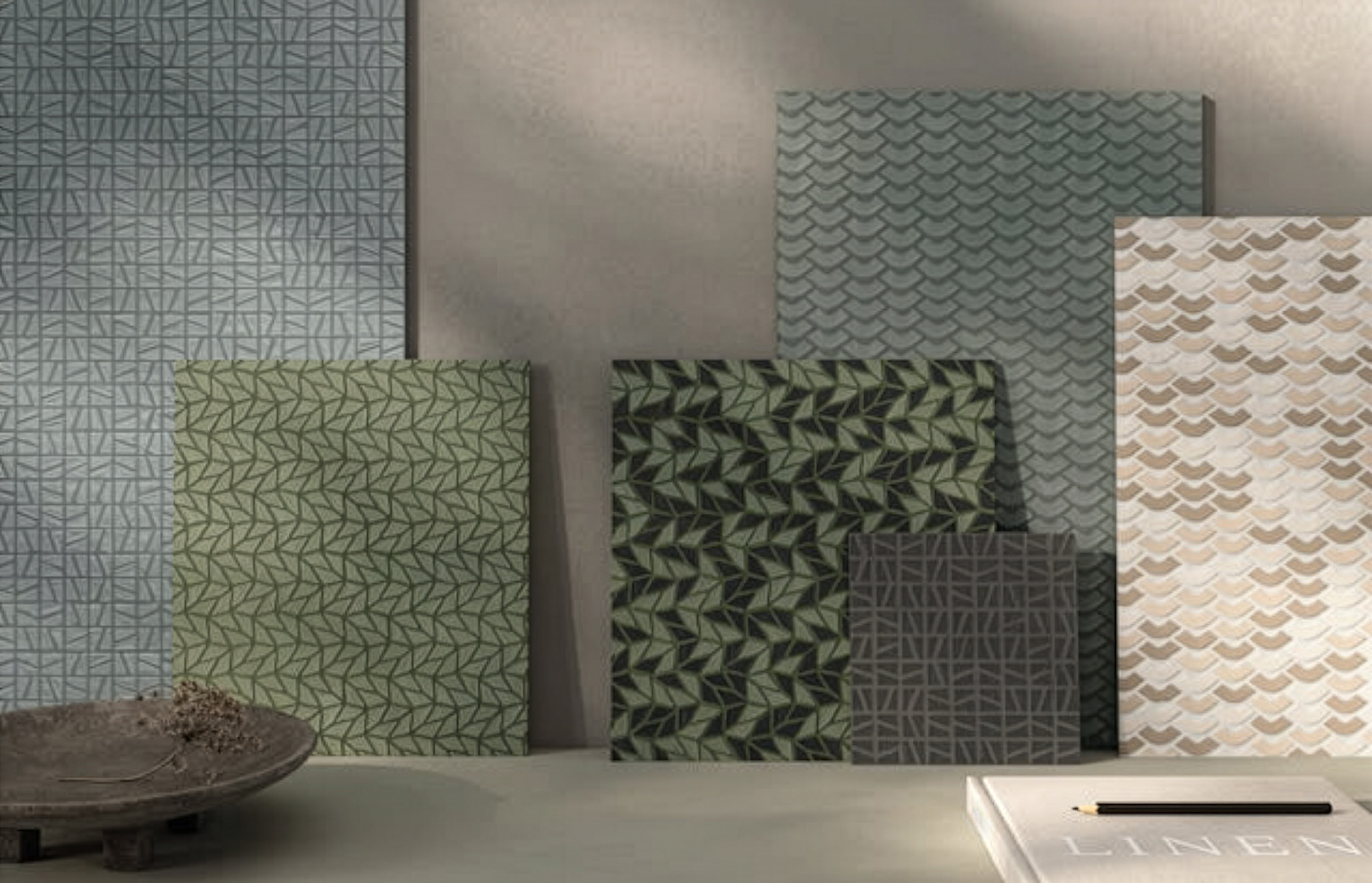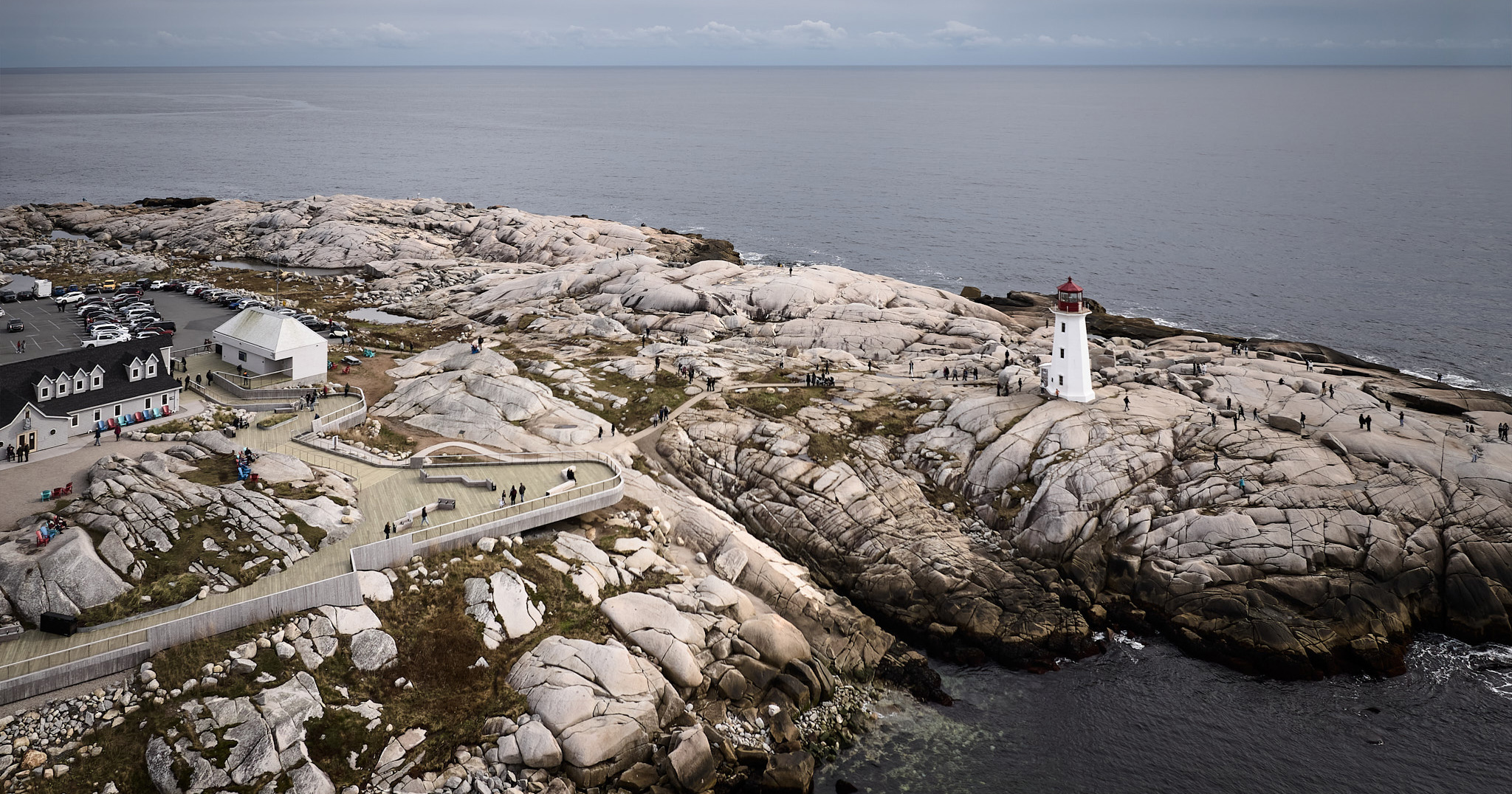HIV self-test among projects from Georgia Institute of Technology


Dezeen School Shows: an HIV self-test designed for visually impaired people is among the projects from Georgia Institute of Technology.
Also featured is a portable nightlight for children and an air pollution monitoring device.
Georgia Institute of Technology
Institution: Georgia Institute of Technology
School: School of Industrial Design
Courses: Industrial Design Studio II, Martin-Rose Humanitarian Design Award 2025 and The Bredendieck Awards 2025
Tutors: Kimberly Snyder, Lisa Marks, Yaling Liu, Wayne Li and Hyun Joo Oh
School statement:
"The School of Industrial Design takes full advantage of the fact that Georgia Tech is a top-tier research institute. We teach our students to use the technologies and engineering expertise surrounding them to design products with the end-user in mind.
"Georgia Tech industrial designers are uniquely equipped to lead in technical environments regarding topics such as parametric modelling, rapid prototyping, interactive environments, wearable technology, universal design and assistive technology. We take a fundamentally different approach from industrial design programmes rooted in the fine arts.
"Our students learn design techniques, such as graphic communications, sketching and modelling, which allow them to draw inspiration from the world. As a result, they're able to design visual outputs that play a critical part in research and user testing.
"We specialise in design research as a research-promoting unit of Georgia Tech. Our undergraduate and graduate programmes consistently practice research and advancement within shifting topics and industries.
"We find that such research practice and technological resources allow our students to be highly competitive upon graduation, with a high percentage of students and alumni practicing design and innovation across "new economy" industries.
"Not only do our students solve design problems based on user-centred research, but our design philosophy influences research and innovation throughout Georgia Tech."

Vue by Amiti Arunmozhi
"Vue is a lounge chair fabricated from a half-inch acrylic sheet and steel tubing in a dramatic silhouette. It is designed to be the focal point of a modern living room.
"The sculptural floating quality created by the suspension of the seat through non-traditional leg locations is permitted by the strength of the steel legs.
"The connections from acrylic to steel allow the clear seat to float above the two symmetrical legs. It features a comfortable high back rest and slightly reclined seat angle designed from ergonomic testing to support a range of body types.
"Visually, the chair looks as though it was in perspective from any viewpoint (point de Vue)."
Student: Amiti Arunmozhi
Course: Industrial Design Studio II
Tutor: Kimberly Snyder

Ovolo by Marti Ann Bailey
"This interactive nightlight creates a soothing and engaging bedtime experience, encouraging relaxation and promoting healthy sleep routines for children.
"Through gentle lighting and tactile features, Ovolo helps children feel secure while fostering a sense of independence and control over their nighttime environment.
"The stackable nightlight allows children to remove the top two sections to use as a travelling nightlight. This provides a way to move around in the dark or read a book. Children are encouraged to stack the elements for charging during sleep.
"This nightlight helps kids wind down, feel safe and even look forward to lights out."
Student: Marti Ann Bailey
Course: Industrial Design Studio II
Tutor: Kimberly Snyder

Chroma Air by Vishal Venkatesh
"Air pollution is a global crisis and the second leading risk factor for death, claiming millions of lives annually. Enter Chroma – a revolution in environmental health advocacy.
"This innovative home air quality monitor translates complex atmospheric science into an accessible, intuitive system empowering individuals to understand and address the invisible threat around them.
"Chroma is distinguished by its translation of the resulting complex data into an intuitive visual language.
"Using dynamic gradient and contrast lighting, it transforms invisible pollution metrics into visible colour patterns, instantly communicating changing pollution levels within their broader context to communicate their significance, regardless of technical literacy."
Student: Vishal Venkatesh
Course: Martin-Rose Humanitarian Design Award 2025

Agrivoltaics by Jemma Siegel and MacKenzie York
"For family vineyards in the West Bank, who are seeking ways to shade their crops and protect their harvests from the risk of climate change, our modular agrivoltaic system is an ideal energy-producing solution.
"The solution generates off-grid power, improves crop health and meets farmers' everyday needs by minimising installation costs and maintenance effort.
"This is the first agrivoltaics system directly designed to be installed at small, family-owned farms. In order to best fit the needs of these farmers, it can be set up on site with only two people and requires only a simple hand crank to turn the panels."
Students: Jemma Siegel and MacKenzie York
Course: Martin-Rose Humanitarian Design Award 2025
Tutor: Wayne Li

TC-01 DAC and AMP by Cynthia Li and Junzhe Yan
"TC-01 is a personal music device that reimagines listening through intentional, physical interaction. In an era where music consumption is dominated by screens and seamless streams, TC-01 challenges the passive nature of modern listening.
"By reintroducing tactility in a purposeful way, TC-01 invites users to slow down and engage with music. It's a statement about presence in a world of constant playback, where touching sound becomes part of the experience.
"Blending analog inspiration with contemporary functionality, every control is designed to be felt – offering a more deliberate way to listen that is as much about physical interaction as it is about sound."
Students: Cynthia Li and Junzhe Yan
Course: The Bredendieck Awards 2025
Tutor: Lisa Marks

Tether by Sarah Harris
"Tether is a system of playful IoT devices designed to combat rising teen loneliness, anxiety and depression by fostering tangible, non-addictive and emotionally rich remote connections from home.
"Each device is rooted in a distinct sensory mode, ensuring accessibility and sensory variety. The clock displays friends' moods, the plant exchanges touch and the phone enables personal expression.
"By replacing screen-based interactions with tangible experiences, Tether offers teens meaningful tools that support emotional wellbeing and connection."
Student: Sarah Harris
Course: The Bredendieck Awards 2025

Sahara Tote by Seryung Sarah Kim
"The Sahara Tote takes the 'stitch' out of sustainability. By utilising an interlocking mechanism instead of traditional sewing methods, the Sahara Tote has revolutionised the production process, reducing waste and resource consumption without compromising on quality or durability.
"Inspired by the desert landscape, where the dune juxtaposes its windward and Leeward hills, the Sahara Tote exudes an elegance that seamlessly transitions from urban streets to rugged terrain.
"Sewn products are difficult to disassemble, thus to reuse. Let's embrace sustainability without sacrificing style."
Student: Seryung Sarah Kim
Course: The Bredendieck Awards 2024
Tutor: Yaling Liu

Scentire by Ernuo Cheng, Lungyu Li and Yiwen Wu
"Preserving nature's fragrant legacy. Smell serves as the gateway to memories and emotions. However, capturing and preserving the scents of past objects becomes challenging over time.
"Like natural history museums, which archive specimens and illustrations of extinct plants, their original scents are often lost.
"We aim to devise a product that not only documents but also replicates the fragrances of endangered plants, allowing future generations to experience these sensory cues in their entirety."
Student: Ernuo Cheng, Lungyu Li and Yiwen Wu
Course: The Bredendieck Awards 2024

Weaving Waves by Lissette Romero
"Weaving Waves is a speaker weaving kit, designed to inspire exploration of electronics. It demonstrates the value of sustainability through an immersive hands-on activity.
"Components in this STEM education kit are made of either sustainable materials, re-purposed e-waste or re-purposed plastic bags.
"Through a make-it-yourself approach, weaving waves encourages creative expression and facilitates a personal connection between the product and user.
"Studies have shown people to place a higher value on products that they have partially created or assembled themselves. By demonstrating concepts like up-cycling and sustainability in this manner, we can reinforce the value of these topics."
Student: Lissette Romero
Course: The Bredendieck Awards 2024
Tutor: Hyun Joo Oh

Lucia by Brian Tran
"Lucia is a multi-sensory HIV self-test that provides privacy and autonomy for the visually impaired.
"Despite there being over 43,000,000 people with blindness and even more with moderate to severe visual impairment, most products are not designed with blind and low vision (BLV) people in mind.
"People with disabilities are often at higher risk of exposure to HIV due to the lack of education, prevention and support services allotted to them because of assumptions that they are not sexually active or participate in risk behaviours.
"With Lucia's disability-first approach, BLV users are empowered to monitor their health independently."
Student: Brian Tran
Course: Martin-Rose Humanitarian Design Award 2025
Tutor: Lisa Marks
Partnership content
This school show is a partnership between Dezeen and Georgia Institute of Technology. Find out more about Dezeen partnership content here.
The post HIV self-test among projects from Georgia Institute of Technology appeared first on Dezeen.



















































